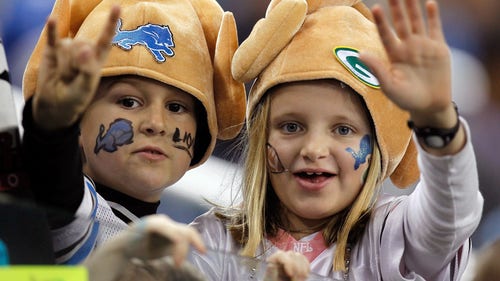
NFL lockout, decertification: What it all means
A primer on a potential labor shutdown in the NFL, which could happen this week.
Q: What does a lockout mean?
A: If the owners impose a lockout of the players after the collective bargaining agreement expires at the end of the day Thursday, there would be no on-field football action or communication between players currently in the NFL and the teams. Team doctors would be allowed to monitor the progress of injured players, but not at the team's facility, the league says.
No offseason workouts or minicamps would be held during a lockout. No players, including those drafted in April or rookie free agents, could be signed. Players would not have medical coverage provided by the teams, but can continue their coverage by paying for it themselves.
Should the lockout last long enough, there would be no games.
A lockout is a right management has under federal labor law to shut down a business upon the expiration of a collective bargaining agreement. Employees have the same right - they can strike, something the NFLPA did in 1982 and 1987.
Q: What does decertification mean and where might it lead?
A: Decertification would mean the union no longer exists, and it almost certainly would lead to a court fight.
Decertification would primarily be a legal move by the players to prevent a lockout. Players would give up their rights to collectively bargain, but they could individually file antitrust claims against the NFL and the owners. It's a lengthy process in which the players would claim the league is restricting trade. If they were successful, the league could lose some of its antitrust protection; as long as there is a players union, the league is protected from such antitrust actions.
The NFLPA received approval from its members to decertify in a series of meetings with each of the 32 teams that began last summer. According to the union, the primary reason to decertify is to save the 2011 season.
In 1989, the union decertified and a subsequent settlement with the NFL in 1993 led to free agency and the reforming of the NFLPA.
The union must decertify before the CBA expires at the end of the day Thursday or jurisdiction for labor issues no longer will be handled by U.S. District Court Judge David Doty in Minneapolis. But the union could file for decertification in another six months.
Q: Why is the draft being held? How will a work stoppage affect players entering the league?
The draft was protected under the CBA signed in 2006 that the owners opted out of in 2008. Nonetheless, the plan is to go ahead with the draft.
In a work stoppage, drafted and undrafted rookies will not be permitted to sign contracts or communicate with NFL clubs after the draft, except for a news conference for top picks at club facilities. Those players, just like veterans, would need to organize and pay for any workouts they conduct independently.
The players also would need to provide their own injury insurance, although many already do so beyond what clubs provide.
Q: What happens with free agency during a work stoppage?
A: It disappears. No player contracts can be negotiated or signed. While hundreds of players whose contracts have not expired would be in football limbo, the free agents would fall into far deeper uncertainty.
Q: Can the CBA deadline be extended? Who would have to do so and how would it be done? Under what terms would the league be operating in that case?
Both sides would have to agree to ''stop the clock,'' and that likely would only occur if significant progress is being made as the CBA expiration deadline closes in Thursday night. The union says it has offered to extend the deal several times. Regardless, both sides would have to agree to the terms for and length of an extension.
It's an unlikely scenario.










